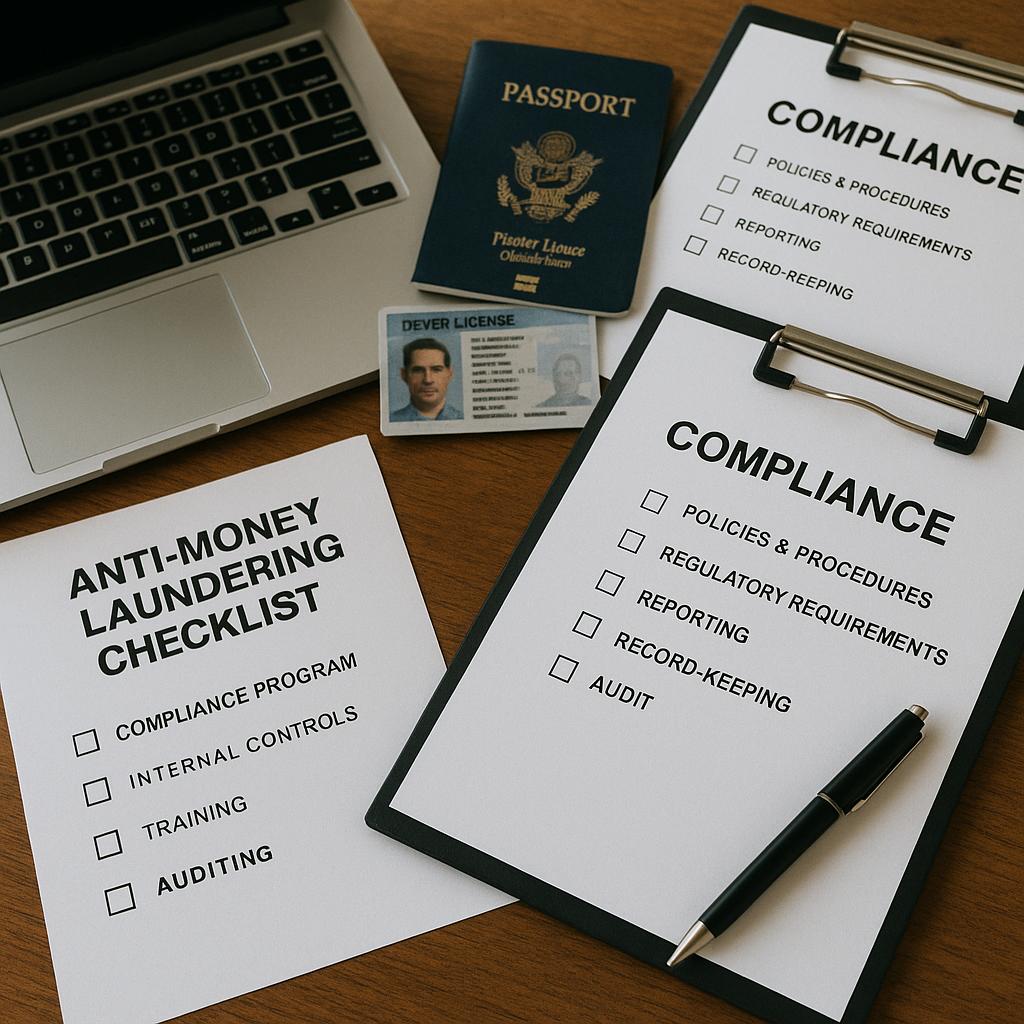When we talk about the Money Laundering Regulations, we are in fact referring to the Money Laundering, Terrorist Financing and Transfer of Funds (Information on the Payer) Regulations 2017. We shall save time and space by abbreviating this to “MLR 2017” throughout this guidance. There are, inevitably, various other terms in the guidance that may require clarification, and so we have provided a glossary for your reference when needed.
Many accountants in practice are supervised by HMRC, while others are in firms supervised by a professional body supervisor (PBS). So where we use the term “supervisory authority”, we are including HMRC and all the PBSs, with the understanding that all the supervisory authorities will have slightly different ways of seeking to ensure their supervised populations meet their obligations under MLR 2017.
As a firm of accountants, your practice is a “relevant person”, according to regulation 8 of MLR 2017, and therefore you have certain obligations under Parts 2 to 5 of MLR 2017. The definition of a “relevant person” includes external accountants, tax advisers and/or trust or company service providers (TCSPs). This guidance assumes that your firm is not directly authorised by the Financial Conduct Authority (FCA) for investment business activities. In other words, the requirements of the FCA as a supervisory authority are beyond the scope of this guidance.
MLR 2017 was amended in 2019 and twice in 2022. This shouldn’t concern you, as we shall be referring to the amended MLR 2017 as at the date of publishing this guidance (which will be updated periodically). Nevertheless, it may be helpful to note that some of the recent amendments to MLR 2017 relate to:
- references to “proliferation financing” throughout MLR 2017,
- the reporting of material discrepancies in the relevant registers (including the Register of Overseas Entities), and
- the power of a supervisory authority under regulation 66(1A) to require copies of suspicious activity reports (SARS) made to the National Crime Agency (NCA).
Most of the obligations placed on firms are intended to address the risks of money laundering, terrorist financing and (more recently) proliferation financing. Where this guidance refers to money laundering, it is also intended to apply to terrorist financing (TF) and proliferation financing (PF), unless the context suggests otherwise.
Unfortunately, TF and PF are more relevant to the work of accountants and TCSPs than you might assume. You must ensure you know as much as reasonably possible about the businesses of your clients, including their supply chains and whether goods being shipped could be used in ways that may not be immediately apparent.
What is money laundering?
MLR 2017 sets out a firm’s obligations regarding policies, controls and procedures to address money laundering risks. However, it is useful to remember that the Proceeds of Crime Act 2002 (POCA) and the Terrorism Act 2000 (which carries similar provisions) is where you will find the various money laundering offences defined. (In addition, sections 330 to 333A of POCA establish the offences of failure to disclose and “tipping off”.)
Money Laundering is defined in section 340(11) of POCA as an act that:
- constitutes an offence under section 327 (concealing criminal property), 328 (being involved in an arrangement which one knows or suspects concerns the control of criminal property), or 329 (possessing or using criminal property),
- is an attempt, conspiracy or incitement to commit such as offence, or
- amounts to aiding or abetting such an offence.
Most criminal acts give rise to financial gain (ie proceeds of crime). But when those proceeds appear in a bank account or are used to buy goods or services, they can arouse suspicion and lead investigators back to those who carried out the original crime. Money laundering is the process by which criminal proceeds may be concealed or disguised, so that their source is hidden. Moving funds from one place to another – perhaps more than once – changes its appearance, so that it may, eventually, appear legitimate.
Why is AML compliance important?
Money laundering is an essential part of organised crime. Frustrating the ability of criminals to launder the proceeds of crime reduces the attractiveness of the criminal activity itself. Having said that, there will always be an incentive for criminals to seek to gain large amounts of money from operations such as drug trafficking, modern slavery, armed robbery, cybercrime, etc.
In addition, the proceeds of crime, once laundered, are often used to fund other criminal activities, including the purchase and importation of illegal drugs and the funding of terrorism. If society is perceived as allowing money laundering to take place unimpeded, it is seen as condoning the original crime and any further criminal activity funded by the proceeds. This, in turn, weakens the moral fabric of society.
The process of laundering funds can be a long one, with the objective being to return “clean” money to those who originally came by the money illegally. The money launderer’s business is to reduce the risk of detection and, therefore, they will be attracted to financial systems that they perceive as stable. These are the same financial systems that attract legitimate business – business that relies upon the fact that financial institutions are seen to operate within a robust framework of professionalism and ethics.
Conversely if, for example, the UK was perceived to be vulnerable to the will of criminals, it would have a serious negative impact on foreign direct investment. Therefore, an effective AML framework is fundamental to creating a business-friendly environment in the UK.
Compliance with financial sanctions
The UK has implemented a range of sanctions regimes - either ‘thematic’ (relating to a particular issue) or ‘geographic’ (relating to a particular country or region) – through regulations made under the Sanctions and Anti-Money Laundering Act 2018. Within HM Treasury, the Office of Financial Sanctions Implementation (OFSI) is responsible for achieving improved understanding, implementation and enforcement of financial sanctions in the UK by:
- raising awareness of, and compliance with, financial sanctions,
- detecting and addressing financial sanctions breaches, and
- providing a service to businesses and others affected by financial sanctions.
OFSI provides information and guidance, and issues licences that allow certain activities that would otherwise be prohibited. If your client imports and/or exports goods, you must consider whether financial sanctions may apply to them and, if so, the risk that sanctions may be breached. You must be prepared to know your client well, including their business’s supply chain.
OFSI publishes on the gov.uk website lists of the individuals, organisations and businesses subject to financial sanctions, as well as a consolidated list of asset freeze targets. The UK implements all financial sanctions imposed by the United Nations and the European Union and may also impose its own domestic financial sanctions in certain circumstances.
In July 2022, the Russia (Sanctions) (EU Exit) Regulations 2022 were amended to prohibit persons in the UK from providing accounting, business and management consultancy services to a person connected with Russia. If this is likely to be relevant to your firm (or if you have clients providing professional services), you should refer to the guidance available on the gov.uk website.
Free AML Education
Complete your annual AML requirement with our in-app education.
Risk Assessments
Risk assessments help you decide how much due diligence to apply

AML Red Flags
Submitting a Suspicious Activity Report (SAR) is a legal obligation under UK AML laws.

AML Essentials
If AML feels overly complex, this guidance is designed to help you get to grips with the essentials

Try Firmcheck
for free
Start your compliance journey for free. Try Firmcheck's beautifully designed platform and see why firms trust us with their AML compliance.


